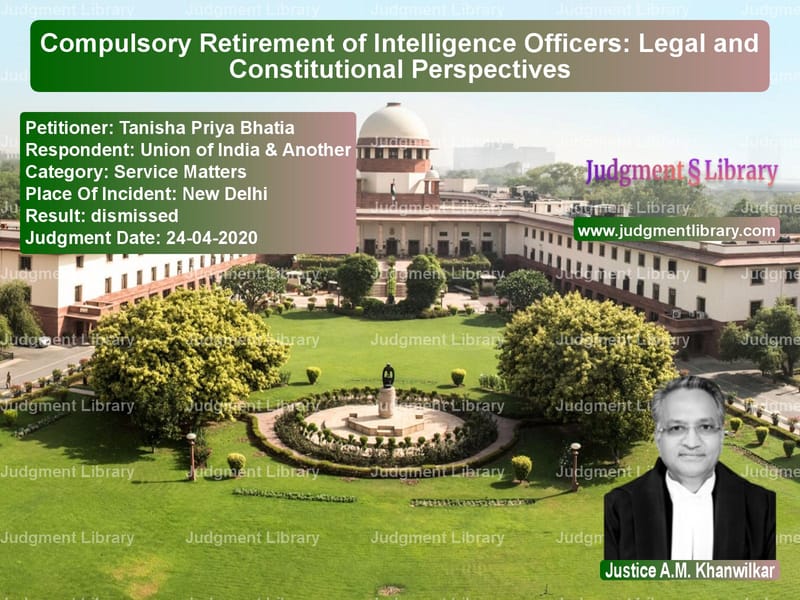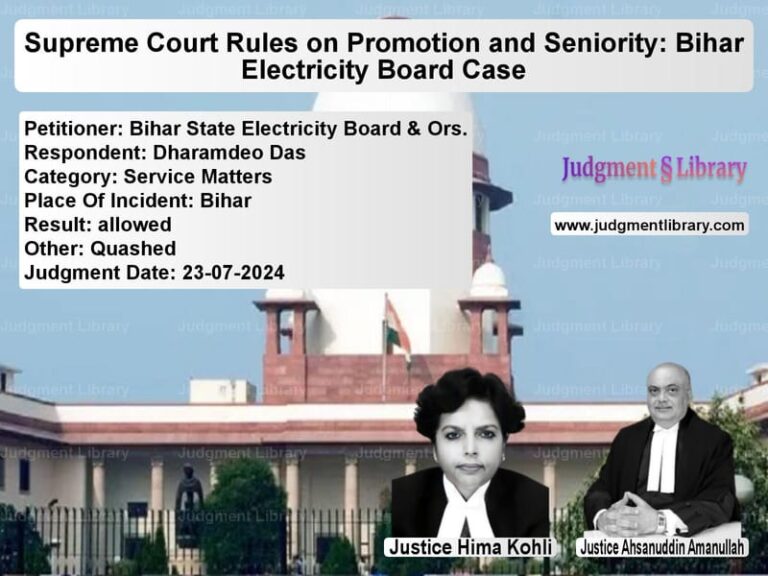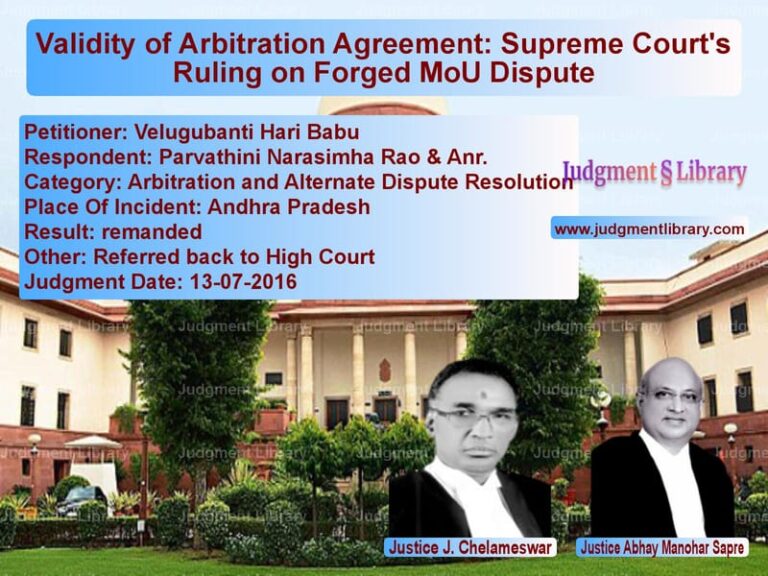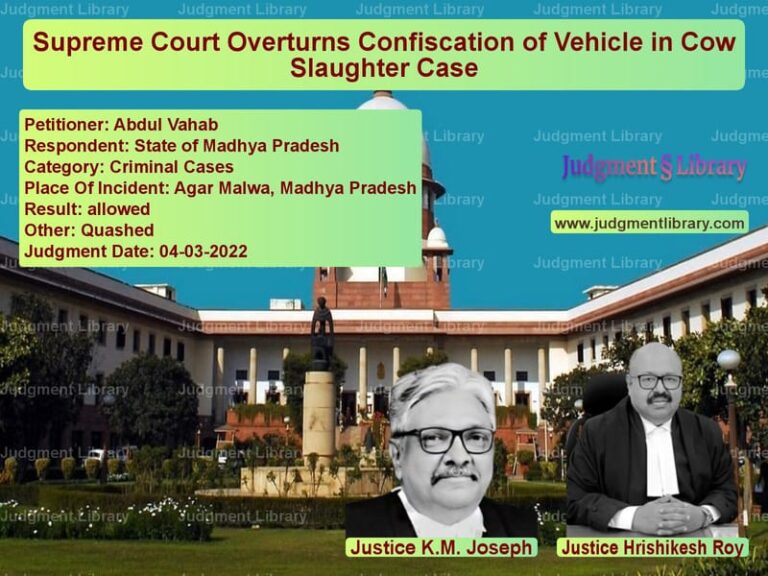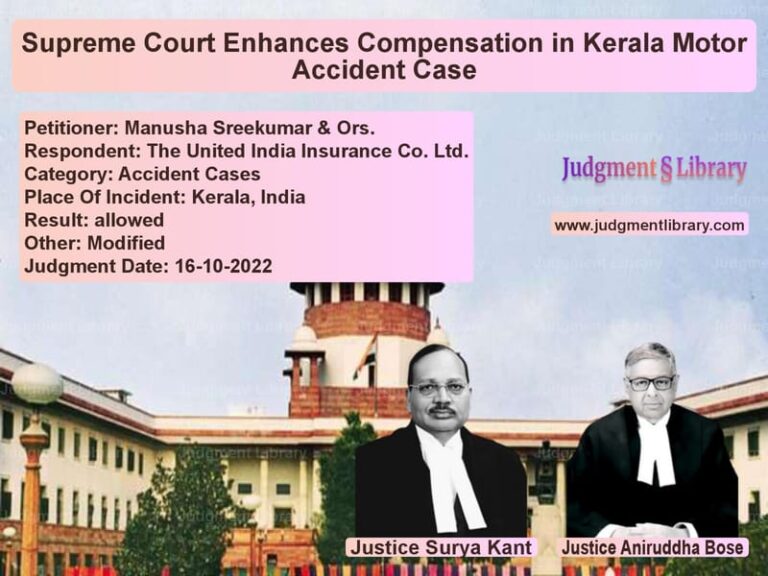Compulsory Retirement of Intelligence Officers: Legal and Constitutional Perspectives
The Supreme Court of India recently ruled on a significant case concerning the compulsory retirement of an intelligence officer in Tanisha Priya Bhatia vs. Union of India & Another. The case involved a challenge to the government’s decision to retire the petitioner from service under Rule 135 of the 1975 Rules, citing national security concerns. This judgment sheds light on the complex interplay between service law, national security considerations, and constitutional rights.
Background of the Case
The petitioner, Tanisha Priya Bhatia, was employed as an officer in the Research and Analysis Wing (RAW), India’s premier external intelligence agency. She was forcibly retired from service, with the government citing security concerns due to her identity as an intelligence officer being compromised. The decision was taken under Rule 135 of the 1975 Rules, which allows for compulsory retirement in certain circumstances without a detailed inquiry.
The petitioner challenged the decision, arguing that it was arbitrary and in violation of her constitutional rights, particularly under Articles 14 and 311 of the Indian Constitution. She contended that the compulsory retirement was a punitive measure disguised as an administrative action and that she was not given an opportunity to contest the allegations against her.
Legal Issues Raised
- Whether the government’s decision to compulsorily retire the petitioner was justified under Rule 135 of the 1975 Rules.
- Whether the retirement amounted to punishment without due process, violating Article 311.
- Whether intelligence officers have a right to procedural safeguards when being removed from service on security grounds.
- Whether national security considerations can override fundamental rights.
Petitioner’s Arguments
The petitioner, Tanisha Priya Bhatia, advanced the following arguments:
- Her compulsory retirement was arbitrary and unjust, violating the principles of natural justice.
- Rule 135 of the 1975 Rules was unconstitutional as it allowed for termination without an inquiry.
- Article 311 of the Indian Constitution provides protection against dismissal or removal from service without a proper inquiry, and her forced retirement amounted to a disguised dismissal.
- The allegations of her identity being compromised were baseless and not supported by any evidence.
- She was subjected to workplace harassment, and her complaints were not investigated properly.
- The government’s reliance on “national security” as a justification was vague and lacked substantial reasoning.
Respondent’s Arguments
The Union of India defended its decision, presenting the following arguments:
- The nature of intelligence services is unique, requiring different employment rules than those for ordinary government employees.
- Rule 135 of the 1975 Rules was designed to protect national security interests and had been lawfully invoked.
- The petitioner’s continued employment in RAW posed a security risk after her identity had been exposed.
- Intelligence officers do not have the same procedural protections as regular civil servants due to the sensitive nature of their work.
- Her retirement was not punitive but an administrative necessity, and she was provided pensionary benefits as per Rule 135(2)(4).
- Courts should not interfere in matters of national security where the executive has exclusive domain.
Supreme Court’s Observations and Ruling
The Supreme Court considered the constitutional validity of Rule 135 and its applicability in cases involving intelligence officers. The key observations made by the Court were:
- National security considerations require a different framework for employment and termination in intelligence agencies.
- “When an intelligence officer’s identity is exposed, their continued employment in a sensitive organization can pose a direct threat to national security. Rule 135 is designed to mitigate such risks and is not punitive in nature.”
- Compulsory retirement under Rule 135 does not amount to dismissal or removal and thus does not require a full-fledged inquiry.
- Judicial review in national security matters is limited, and courts must defer to the executive’s assessment of security risks.
- The petitioner had been provided pensionary benefits, negating the argument that she was left without financial security.
The Court concluded that the government’s decision was legally valid and dismissed the petition.
Key Takeaways from the Judgment
- Limited Judicial Review: Courts have limited authority to interfere in intelligence service matters where national security is cited as a concern.
- Special Rules for Intelligence Officers: Intelligence personnel are subject to different service conditions than regular civil servants.
- National Security vs. Individual Rights: Security considerations can override procedural safeguards in exceptional cases.
- Not Punitive: The Court clarified that compulsory retirement under Rule 135 is not a form of punishment.
Conclusion
This judgment sets an important precedent on the employment conditions of intelligence officers. It reinforces that national security is a paramount concern and that intelligence agencies require flexibility in handling personnel issues. While procedural safeguards are vital, intelligence services operate under unique conditions that necessitate different rules.
The ruling also highlights the challenges faced by intelligence officers regarding service protections and procedural fairness. Future cases may further explore the extent to which national security considerations can limit fundamental rights.
Petitioner Name: Tanisha Priya Bhatia.Respondent Name: Union of India & Another.Judgment By: Justice A.M. Khanwilkar.Place Of Incident: New Delhi.Judgment Date: 24-04-2020.
Don’t miss out on the full details! Download the complete judgment in PDF format below and gain valuable insights instantly!
Download Judgment: Tanisha Priya Bhatia vs Union of India & Ano Supreme Court of India Judgment Dated 24-04-2020.pdf
See all petitions in Employment Disputes
See all petitions in Termination Cases
See all petitions in Public Sector Employees
See all petitions in Judgment by A M Khanwilkar
See all petitions in dismissed
See all petitions in supreme court of India judgments April 2020
See all petitions in 2020 judgments
See all posts in Service Matters Category
See all allowed petitions in Service Matters Category
See all Dismissed petitions in Service Matters Category
See all partially allowed petitions in Service Matters Category

